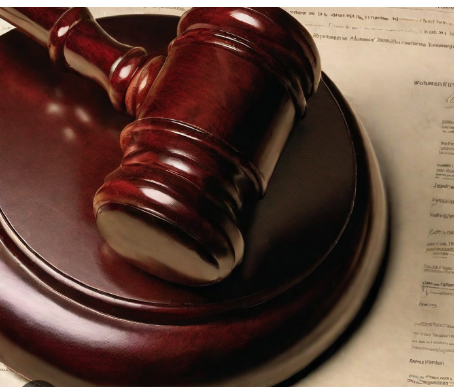In a high-stakes legal battle that has captivated public attention, Judge Fran Gull has issued a pivotal decision in the Delphi murder case. The judge has denied a motion to exclude evidence seized from the suspect’s home, a decision that comes after defense attorneys argued that the search was unjustified due to a misleading probable cause affidavit. This ruling has significant implications for the case against Richard Allen, who is charged with the murders of Libby German and Abby Williams.
The Delphi Murder Case
The Delphi murder case has remained unsolved for years, causing anguish in the community and drawing widespread media coverage. The tragic deaths of two young girls, Libby German and Abby Williams, occurred on February 14, 2017, near the banks of Deer Creek, below the Monon High Bridge. The case took a significant turn when Richard Allen was arrested in October 2022 and charged with their murders.
One of the linchpin pieces of evidence linking Allen to these gruesome murders was an unfired bullet discovered at the crime scene. Authorities asserted that this bullet matched a handgun found during a search of Allen’s residence. It’s this search and the subsequent evidence that became the focal point of a contentious legal battle.
Challenging the Search Warrant
In September and October of 2023, defense attorneys Andrew Baldwin and Bradley Rozzi launched a robust legal challenge. They argued that the probable cause affidavit presented to the court for obtaining a search warrant for Allen’s home was fundamentally flawed. Their contentions revolved around two key points:
- Lack of Specificity: The defense contended that the affidavit failed to specify the precise evidence that law enforcement was searching for in Allen’s residence. Without clear and specific details, they argued, the search warrant lacked a legitimate basis.
- Absence of Link to a Crime: Another critical argument made by the defense was that the probable cause affidavit did not adequately establish a connection between the potential evidence sought and the alleged crime. This connection, they asserted, was a prerequisite for a valid search.
In response to these contentions, the defense sought to suppress all evidence obtained during the search, effectively removing it from consideration in Allen’s case. They argued that the search was not only illegal but also unconstitutional, violating Allen’s Fourth Amendment rights against unreasonable searches and seizures.

Such a motion to suppress evidence is a pivotal strategy in criminal defense, as it aims to weaken the prosecution’s case by disallowing key evidence that may be incriminating. In this case, the exclusion of the bullet and any other evidence obtained during the search could significantly impact the strength of the case against Allen.
On Monday, Judge Fran Gull rendered her decision on this crucial matter. Gull’s ruling rejected the defense’s motion to exclude the evidence. She found that the probable cause affidavit presented to the court contained sufficient information to establish a reasonable belief that evidence related to the murders could be found in Allen’s home and vehicles.
Moreover, Judge Gull dismissed the defense’s claims that the affidavit contained false statements or omitted critical information. In doing so, she upheld the validity of the search warrant, deeming the search itself reasonable and legal under both Indiana law and Fourth Amendment case law.
Judge Gull’s decision has far-reaching implications for the Delphi murder case. It means that the evidence obtained during the search of Allen’s home, including the crucial bullet, remains admissible in court. This decision strengthens the prosecution’s position, allowing them to present this key piece of evidence to the jury.
For the defense, this ruling presents a significant setback. They will need to recalibrate their strategy, as the evidence they sought to suppress can now be used against their client in court.
It’s worth noting that Judge Gull remains the overseeing judge in this high-profile murder case. Despite Richard Allen’s efforts to have her removed, the Indiana Supreme Court decided to reinstate Allen’s defense team, which had been removed from the case earlier due to an evidence leak. However, the Supreme Court rejected Allen’s request to remove Judge Gull or expedite his trial.
As it stands, Richard Allen’s trial date is scheduled for October, and the legal proceedings continue to garner significant attention from the public and the media.
The judge’s decision to uphold the integrity of the evidence in the Delphi murder case underscores the critical role the courts play in determining the admissibility of evidence. It reaffirms the importance of adhering to legal standards when obtaining search warrants and serves as a reminder of the complexities involved in criminal defense.
Read More:
- Attorney General Ken Paxton Seeks Protective Order Amidst Ongoing Whistleblower Suit
- 3 killed, toddler saved after live power line falls onto car in Northeast Portland
As the case moves forward, both the prosecution and the defense will continue to strategize and prepare for what promises to be a closely watched and highly consequential trial in October. The Delphi community and the nation at large await the resolution of this tragic case, hopeful that justice will ultimately prevail.

